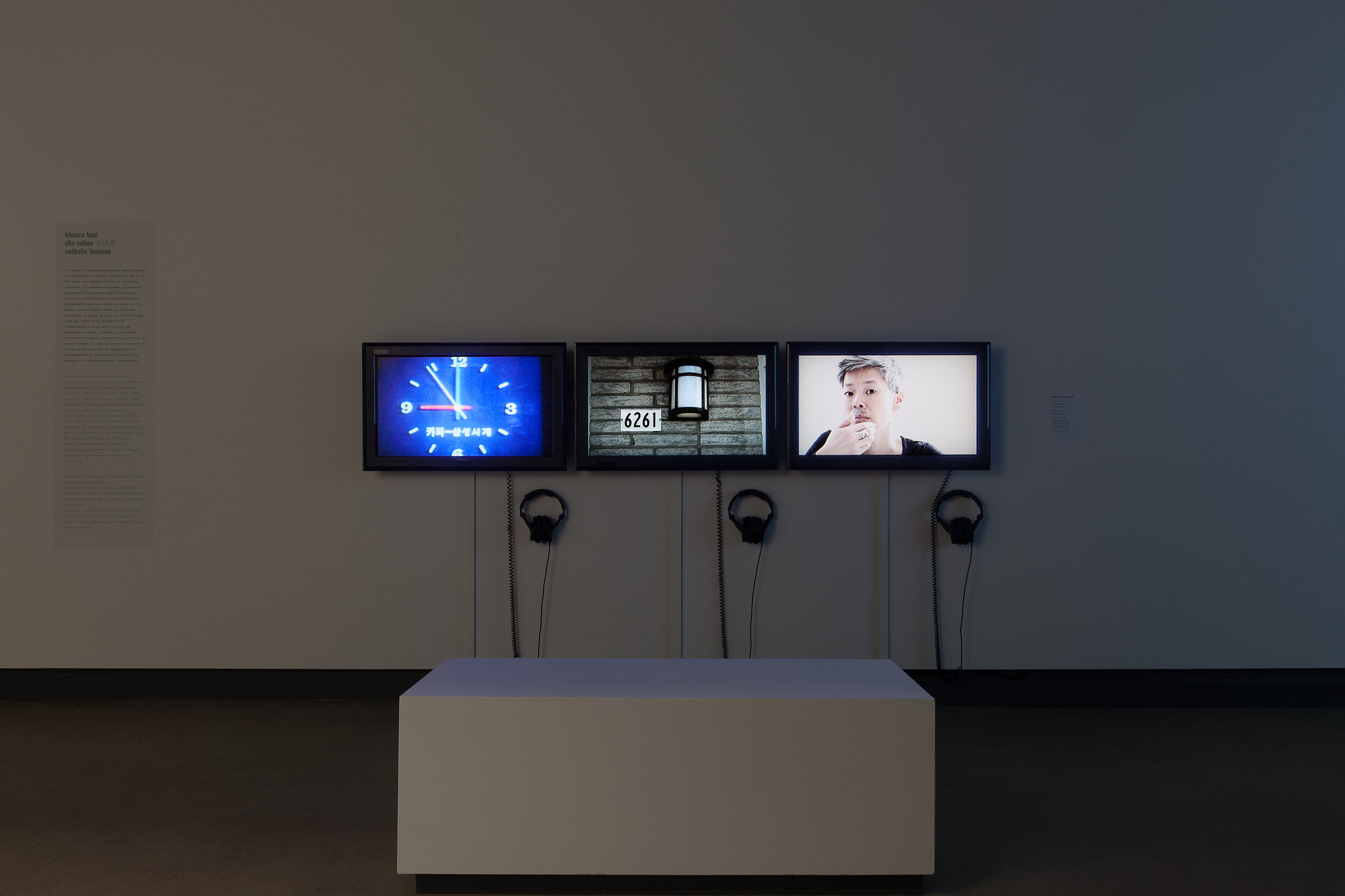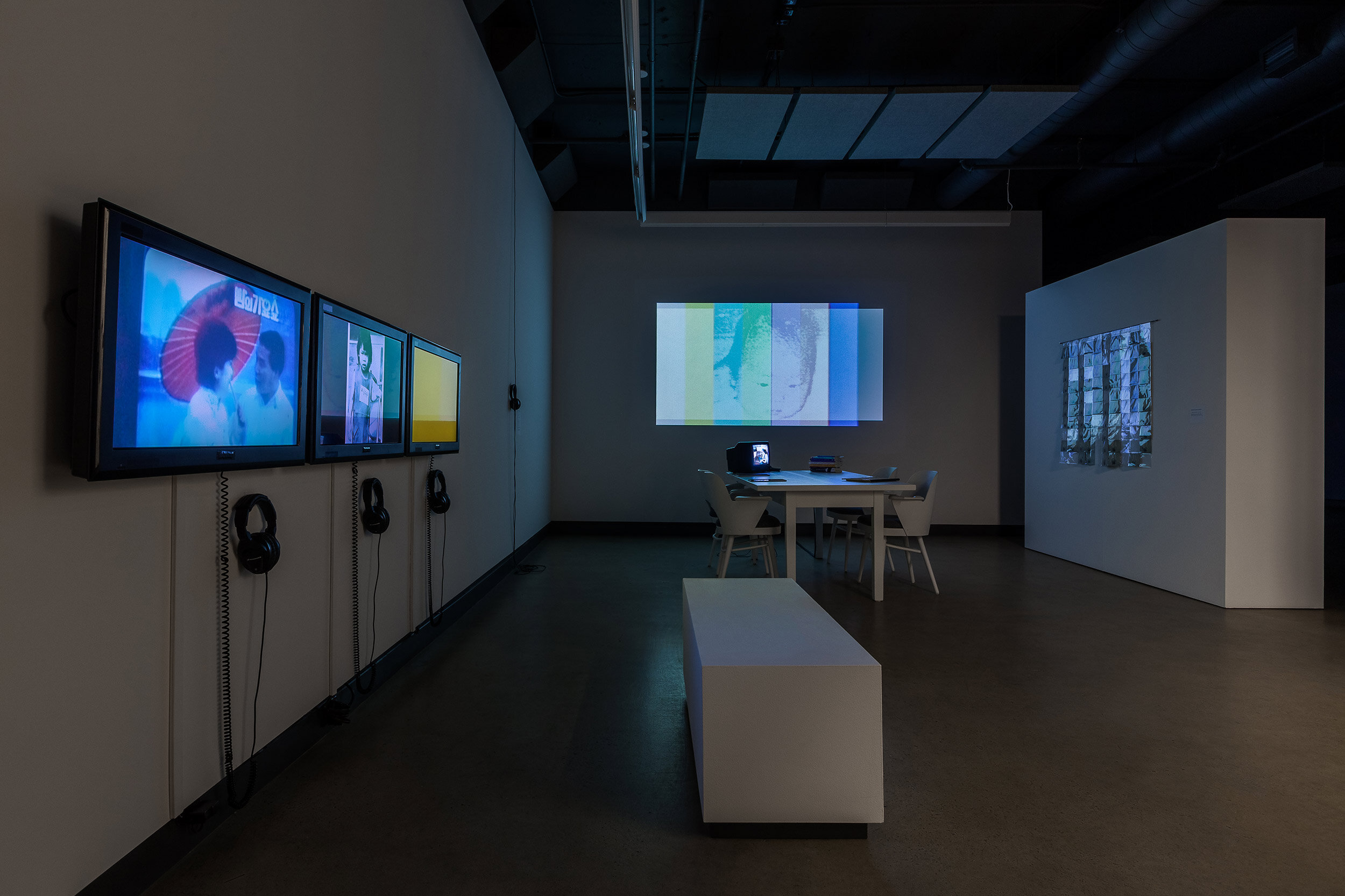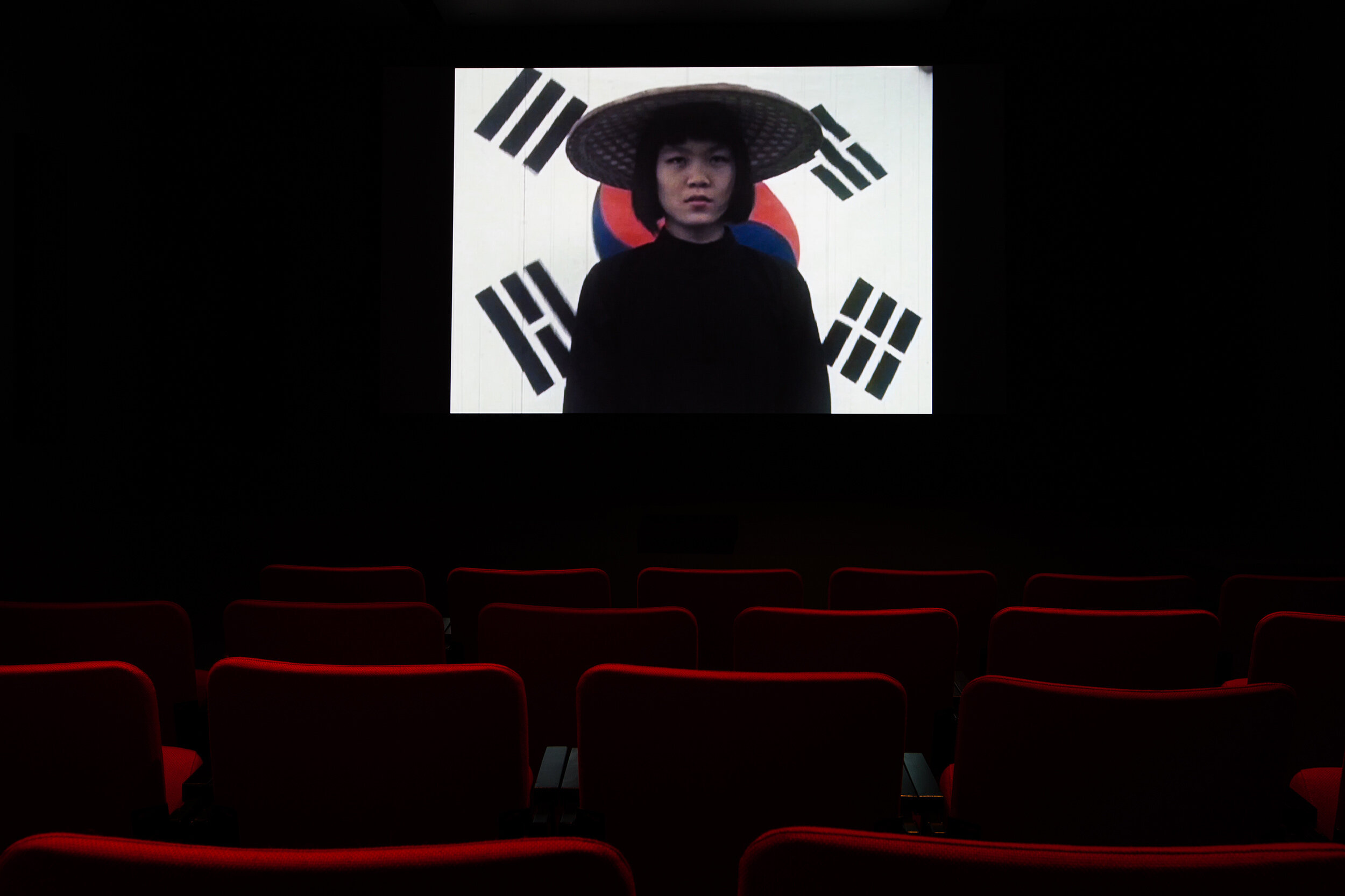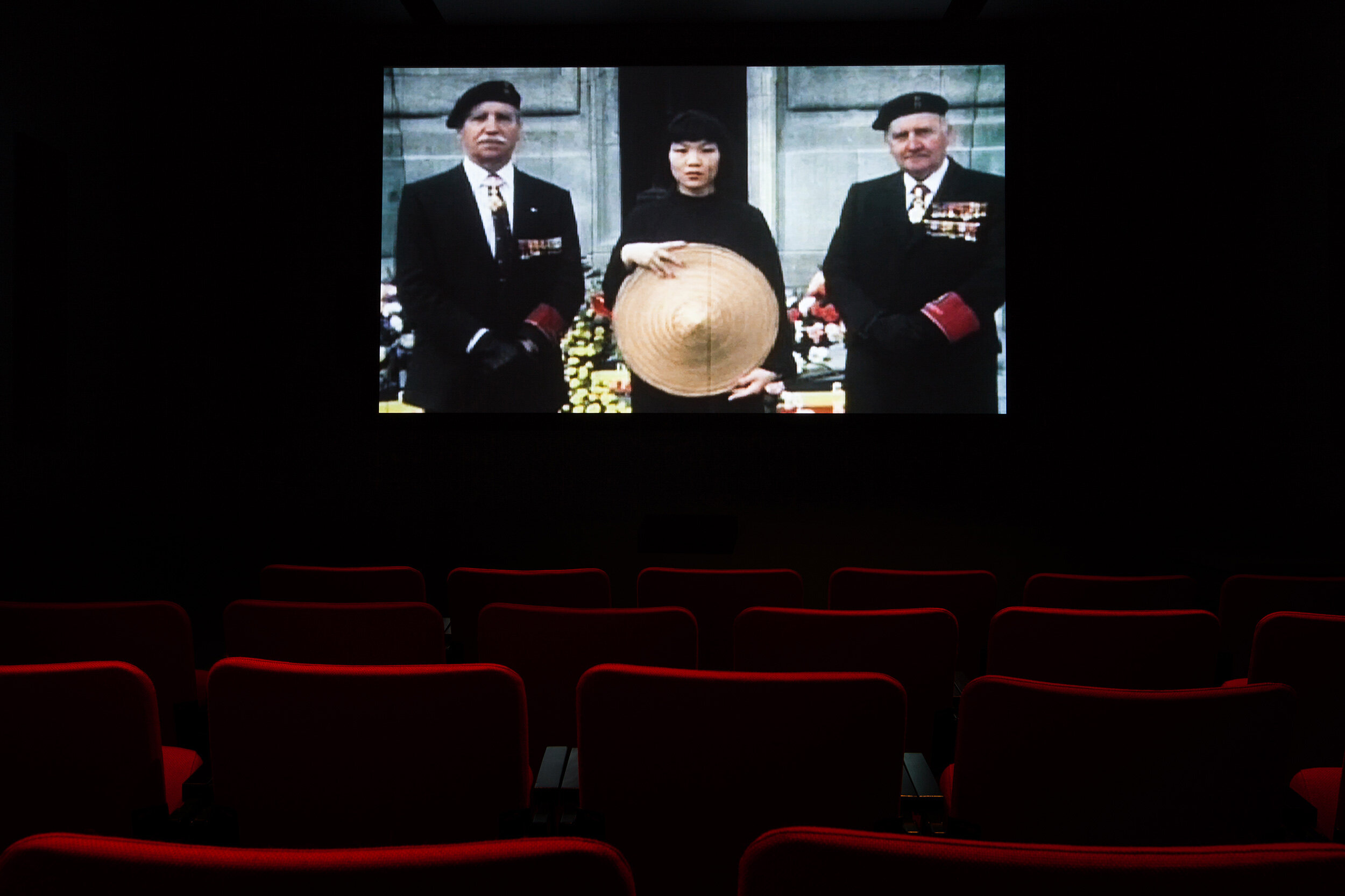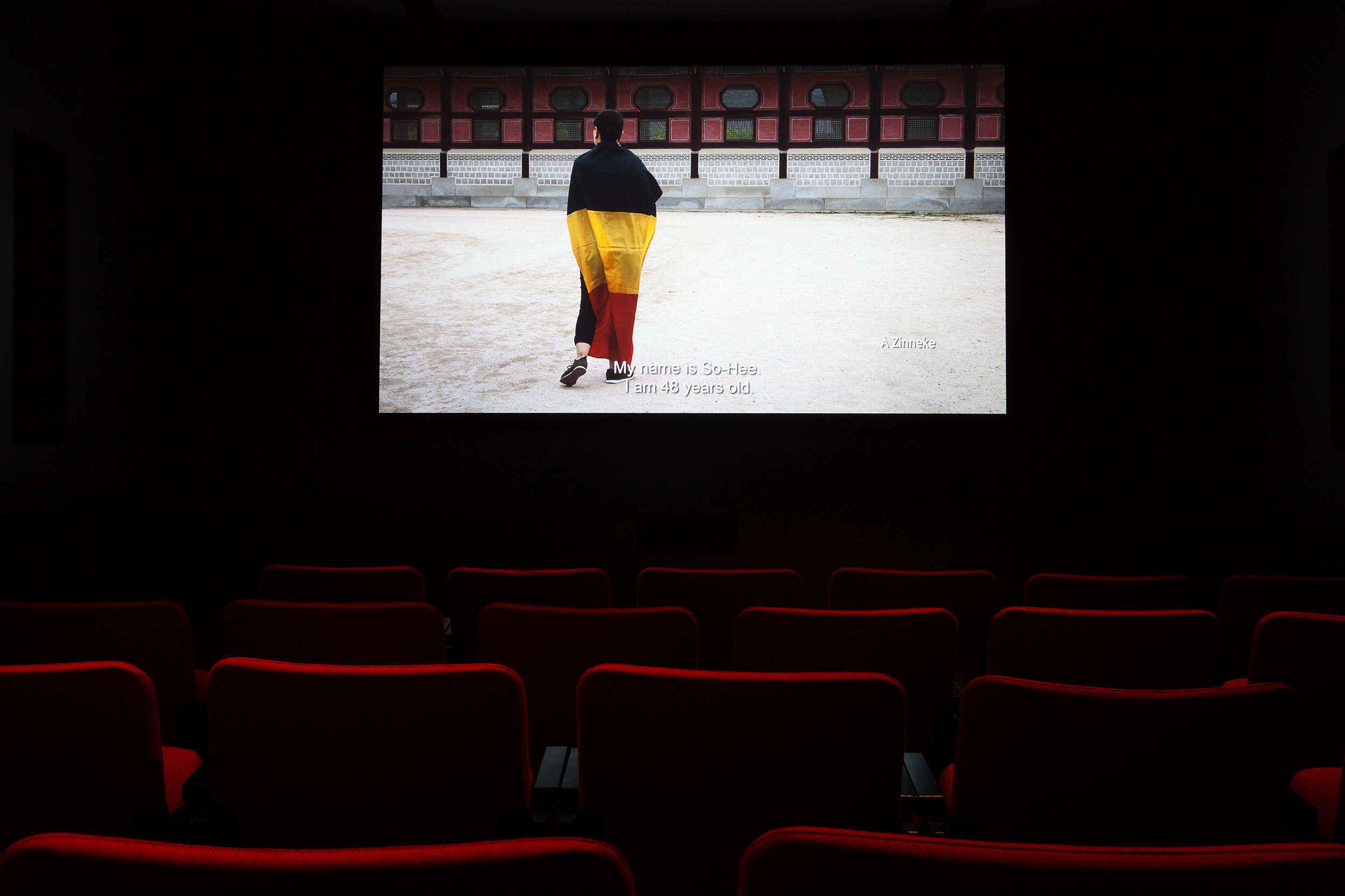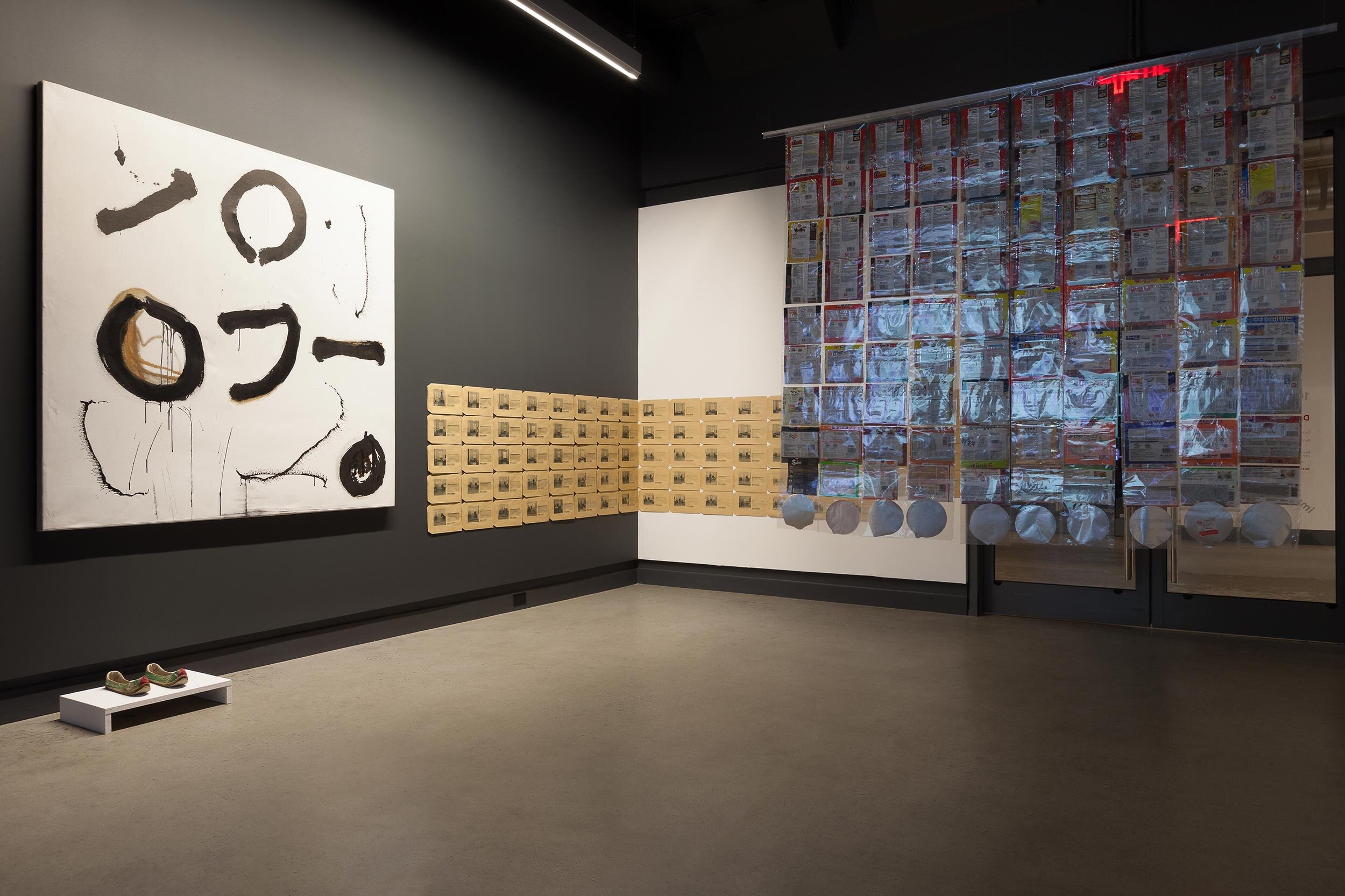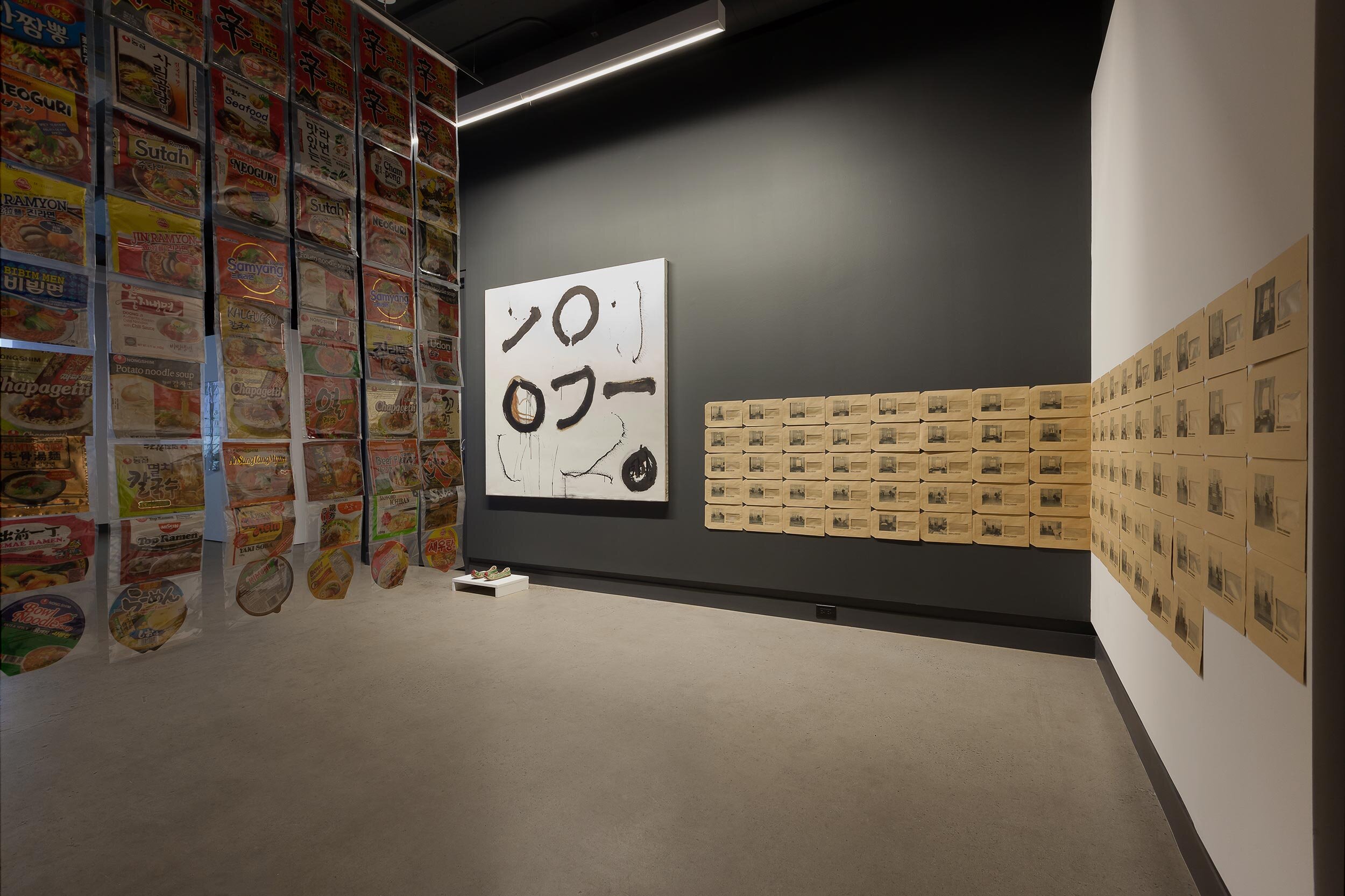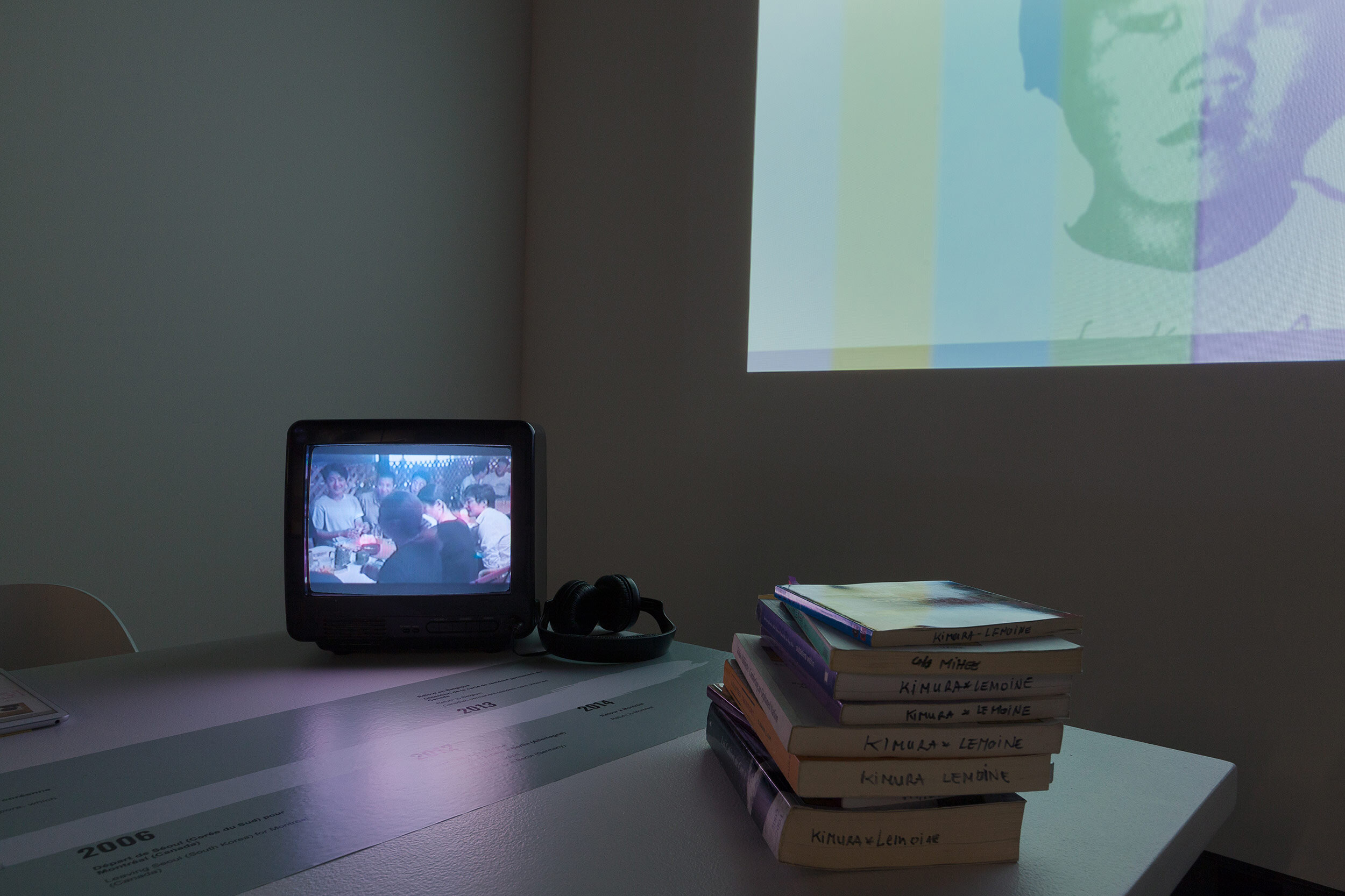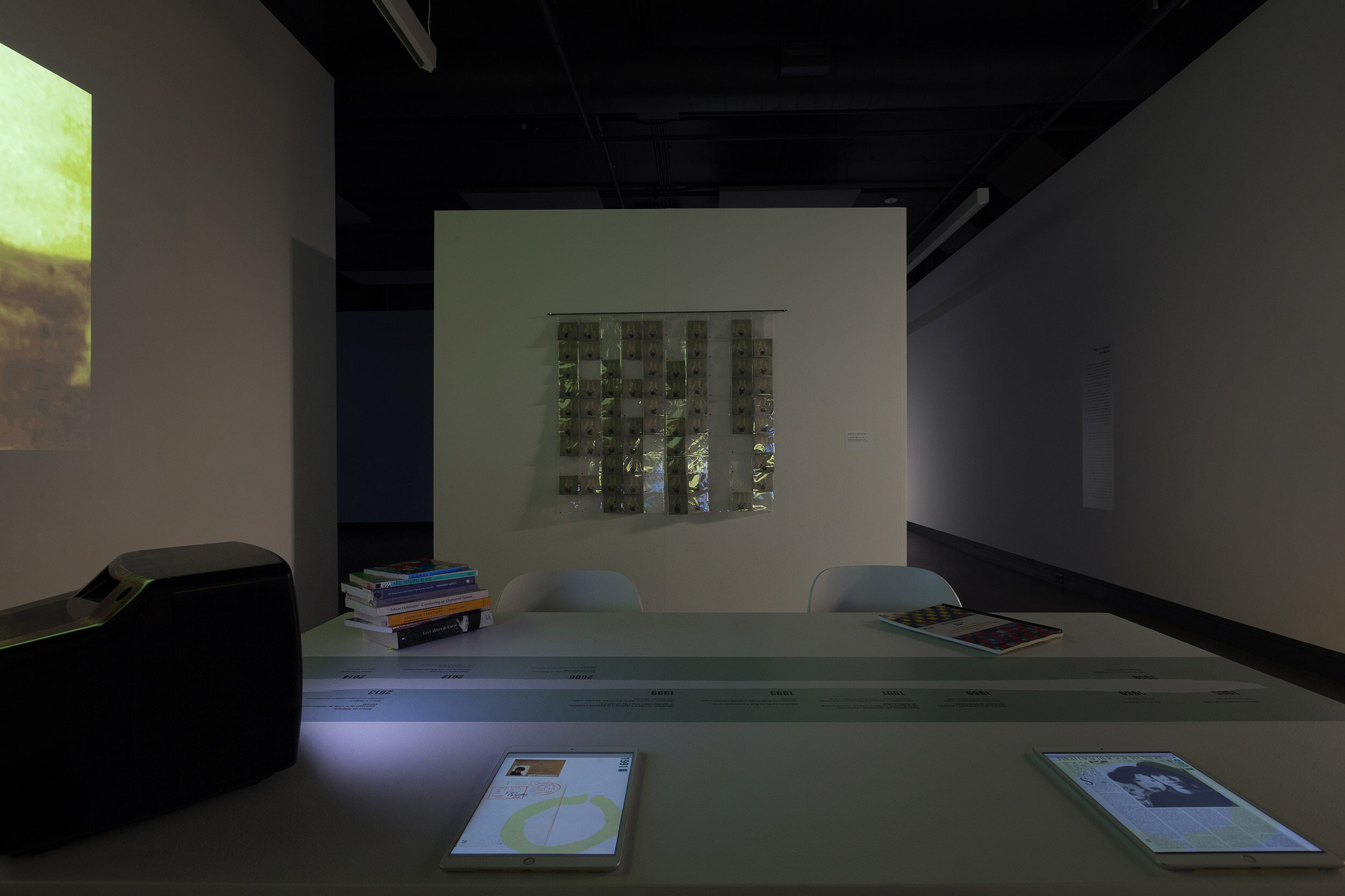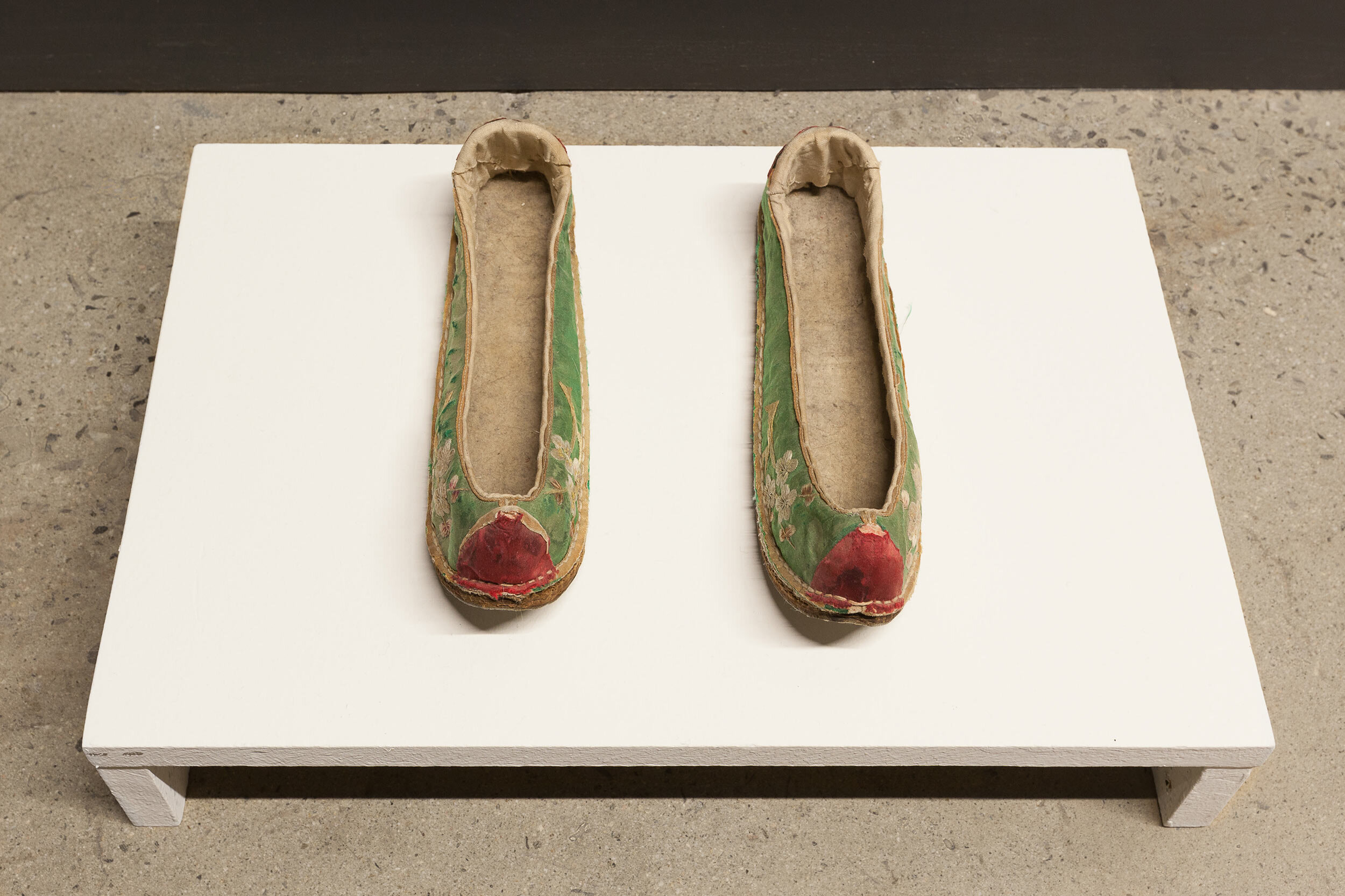kimura byol
cho mihee 조미희
nathalie lemoine
From January 31 to March 21, 2020
Opening on January 30 at 7 pm
The work of kimura byol–nathalie lemoine fascinates by virtue of its breadth and evolution across what seems like several lifetimes and continents: Born in South Korea, raised in Belgium by adoptive parents, the artist sought to reintegrate as Korean for more than ten years before finally immigrating to Montreal and becoming an active player in the city’s queer and feminist art communities — a trajectory throughout which we see a continued exploration of ways of communicating, of new mediums and their potential.
Zer* artistic practice, which could equally be treated as activist archiving, takes the forms of calligraphy, photography, painting, poetry and video. Across these mediums, kimura byol–nathalie lemoine inquires into identity, gender, race, colorism, diaspora and immigration. While the stakes for the artist are indeed personal, the sense of being Other is often articulated in zer work by making the voices of others heard. Community and collaboration, processes of understanding and misunderstanding are integral elements of a whole where transgression is unrelenting.
The present exhibition is a vast survey of works and archives organized around a timeline of the artist’s life. Numerous videos, employing an expansive spectrum of tones and approaches, offer personalized counterpoints to a documented history of international adoption policies or South Korea’s propagandist reintegration curriculum. This abundant collection of works and documents includes a new documentary film titled Adoption : 30 ans après, featuring interviews with the same actress who played in the artist’s first film, Adoption, produced in Belgium in 1988.
kimura byol–nathalie lemoine’s work has been exhibited, screened, published and supported nationally and internationally in various contexts, from cinemas to festivals, from galleries to alternative art spaces. Zer first film Adoption won the “Be Young in Europe Today” Competition (1988). Ze has been a recipient of the MAI’s Mentorship Program (2014-2015), La Centrale’s Powerhouse Prize (2016), and in 2017 ze was granted the Regard sur Montréal film residency (ONF, SODEC, Conseil des arts de Montréal). In 2000 ze published the essay 55% Korean (GimmYoung Publishers) and zer upcoming essay 88 etc. is being published by Les Ateliers des Cahiers, a French publishing house based in Korea that focuses on the works of Korean writers. Ze founded and continues to work on ACA (adoptees cultural archives) documenting the history of adoptee’s culture through media and arts.
Meet the artist
On February 22, 2020, from 2 pm to 4 pm
In the context of zer exhibition, kimura byol-nathalie lemoine will be in the gallery to speak with the public and answer questions. Swing by Dazibao to see the exhibition and meet the artist in an informal setting!
Outreach
Art, adoption and identity
On February 29, 2020 from 10 am to noon
As a gesture of respect for individual and collective experiences, the artist offers a space for sharing amongst adoptees.
Publication
Dazibao receives financial support from the Conseil des arts et des lettres du Québec, the Canada Council for the Arts, the Conseil des arts de Montréal, the Ministère de la Culture et des Communications and the Ville de Montréal.
Dazibao acknowledges that we are located on unceded territory of the Kanien'kehá: ka Nation and that Tiohtiá: ke / Montreal is historically known as a gathering place for many First Nations, and today, is home to a diverse population of Indigenous as well as other peoples.

